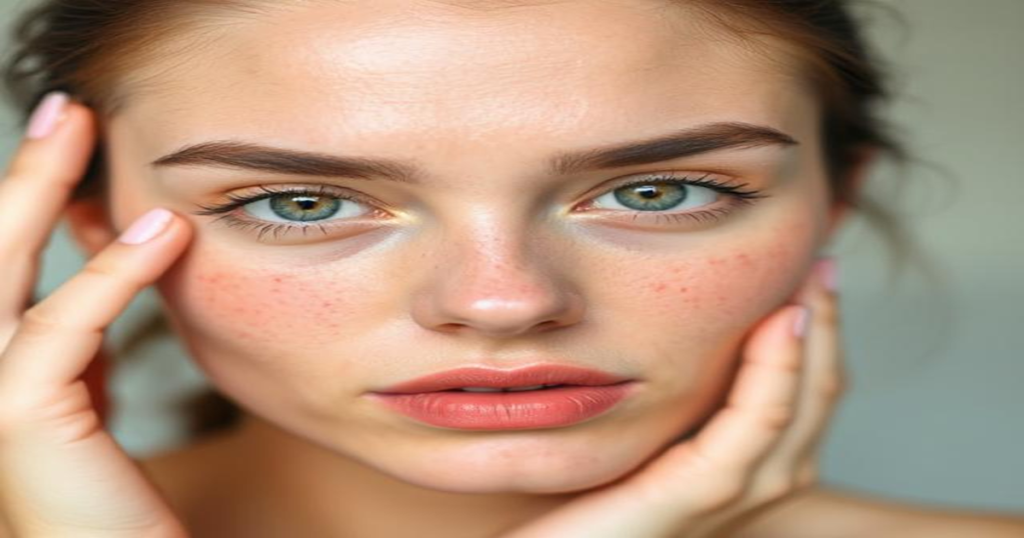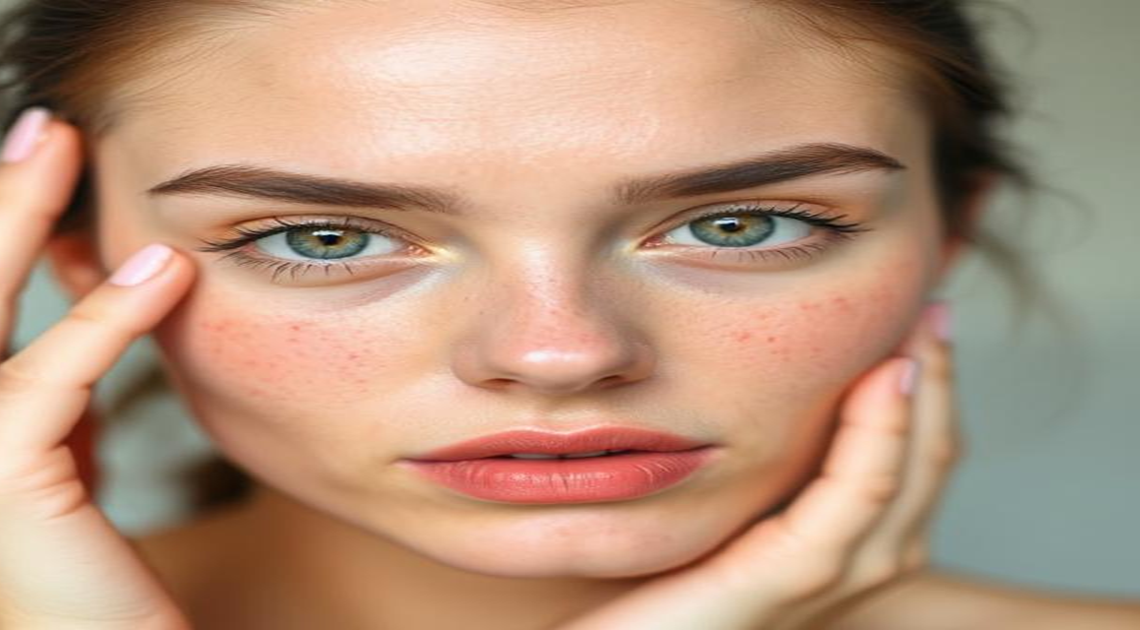Acne-prone skin can be challenging to manage, but with the right skincare routine for acne, you can achieve clearer, healthier skin. Whether you’re dealing with occasional breakouts or persistent acne, this guide will walk you through a step-by-step routine designed to target acne-causing factors while maintaining your skin’s natural balance. Let’s dive into the ultimate skincare routine tailored for acne-prone skin.

Why a Proper Skincare Routine for Acne-Prone Skin Matters
Acne is more than just a surface-level issue. It’s often caused by a combination of factors, including excess oil production, clogged pores, bacteria, and inflammation. A consistent skincare routine for acne helps address these issues by incorporating products that cleanse, treat, and protect your skin. Without a proper routine, acne can worsen, leading to scarring and prolonged skin concerns.
This guide will help you build a routine that not only fights acne but also nurtures your skin’s overall health.
Step 1: Cleanse Gently but Thoroughly
The Importance of Cleansing for Acne-Prone Skin
Cleansing is the foundation of any skincare routine for acne. It removes dirt, oil, and impurities that can clog pores and lead to breakouts. However, harsh cleansers can strip your skin of its natural oils, causing irritation and overproduction of sebum.
How to Choose the Right Cleanser
Look for a gentle, non-comedogenic cleanser that won’t clog pores. Ingredients like salicylic acid or benzoyl peroxide can be beneficial for acne-prone skin, as they help unclog pores and reduce bacteria.
- Morning Routine: Use a mild cleanser to remove overnight buildup.
- Evening Routine: Double cleanse if you wear makeup or sunscreen. Start with an oil-based cleanser to break down impurities, followed by a water-based cleanser to deep clean your pores.
Step 2: Exfoliate to Prevent Clogged Pores
Why Exfoliation is Key for Acne-Prone Skin
Exfoliation removes dead skin cells that can mix with oil and clog pores, leading to acne. However, over-exfoliating can damage your skin barrier, so it’s essential to strike the right balance.
Choosing the Right Exfoliant
Opt for chemical exfoliants like alpha hydroxy acids (AHAs) or beta hydroxy acids (BHAs) instead of physical scrubs, which can be too abrasive. BHAs, such as salicylic acid, are particularly effective for acne-prone skin because they penetrate deep into pores to dissolve oil and debris.
- Frequency: Exfoliate 2-3 times a week, depending on your skin’s tolerance.
- Tip: Always follow up with a moisturizer to keep your skin hydrated.
Step 3: Treat Acne with Targeted Solutions
The Role of Acne Treatments in Your Routine
Acne treatments are the powerhouse of your skincare routine for acne. They contain active ingredients that target acne-causing bacteria, reduce inflammation, and promote skin healing.
Popular Acne Treatment Ingredients
- Benzoyl Peroxide: Kills bacteria and reduces inflammation.
- Salicylic Acid: Exfoliates and unclogs pores.
- Retinoids: Promote cell turnover and prevent clogged pores.
- Niacinamide: Reduces redness and regulates oil production.
How to Apply Acne Treatments
- Apply treatments after cleansing and toning.
- Start with a lower concentration to avoid irritation, and gradually increase as your skin builds tolerance.
- Use spot treatments for targeted areas and leave-on treatments for overall acne prevention.
Step 4: Moisturize to Balance Your Skin
Why Moisturizing is Essential for Acne-Prone Skin
Many people with acne-prone skin skip moisturizer, fearing it will make their skin oilier. However, dehydrated skin can overproduce oil, worsening acne. A lightweight, non-comedogenic moisturizer helps maintain your skin’s hydration without clogging pores.
Choosing the Right Moisturizer
Look for ingredients like hyaluronic acid, glycerin, or ceramides, which hydrate without adding excess oil. Gel-based moisturizers are ideal for oily, acne-prone skin.
- Morning Routine: Use a moisturizer with SPF to protect your skin from UV damage.
- Evening Routine: Opt for a richer formula to repair your skin overnight.
Step 5: Protect Your Skin with Sunscreen
The Importance of Sunscreen for Acne-Prone Skin
Sun exposure can worsen acne scars and cause hyperpigmentation. Additionally, some acne treatments make your skin more sensitive to the sun, making sunscreen a non-negotiable step in your skincare routine for acne.
How to Choose the Right Sunscreen
- Use a broad-spectrum SPF 30 or higher.
- Opt for oil-free, non-comedogenic formulas to avoid clogging pores.
- Look for lightweight, gel-based sunscreens that won’t feel heavy on your skin.
Additional Tips for Managing Acne-Prone Skin
Avoid Touching Your Face
Your hands carry bacteria and oils that can transfer to your face, leading to breakouts. Keep your hands away from your face and avoid picking at acne, which can cause scarring.

Change Your Pillowcases Regularly
Dirt and oil from your hair and face can accumulate on pillowcases, contributing to acne. Change them at least once a week to keep your skin clean.
Stay Consistent
Consistency is key when it comes to a skincare routine for acne. Stick to your routine for at least 4-6 weeks to see noticeable results.
Conclusion
Achieving clear, healthy skin with acne-prone skin is possible with the right skincare routine for acne. By following these steps—cleansing, exfoliating, treating, moisturizing, and protecting—you can address the root causes of acne while maintaining your skin’s natural balance. Remember, patience and consistency are essential. With time, you’ll see a significant improvement in your skin’s texture and clarity.
FAQs
Results vary depending on your skin type and the severity of your acne. Generally, it takes 4-6 weeks of consistent use to see noticeable improvements.
Using too many treatments at once can irritate your skin. Start with one active ingredient and gradually introduce others if needed.
No, skipping moisturizer can lead to dehydration, causing your skin to produce more oil. Use a lightweight, non-comedogenic moisturizer to keep your skin balanced.
Yes, certain foods high in sugar or dairy can trigger acne in some people. Maintaining a balanced diet and staying hydrated can support clearer skin.
If over-the-counter products aren’t effective, consult a dermatologist. They can prescribe stronger treatments or recommend procedures like chemical peels or laser therapy.
By following this ultimate skincare routine for acne, you’ll be well on your way to achieving the clear, radiant skin you deserve. Remember, every skin journey is unique, so listen to your skin and adjust your routine as needed.

